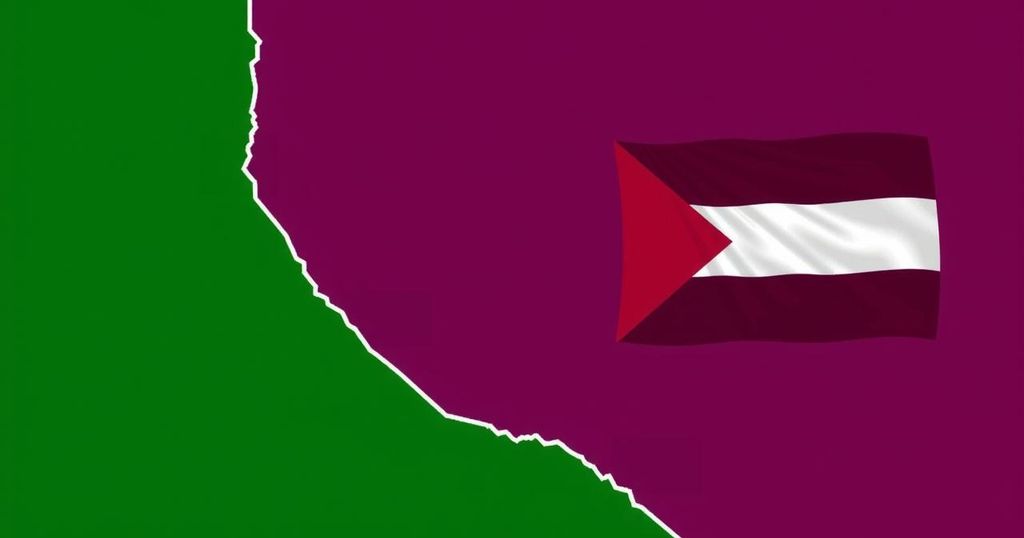Qatar has decided to suspend its mediation efforts for a Gaza ceasefire and hostage release deal, citing a lack of sincere willingness from both Hamas and Israel to negotiate. This marks a significant setback in peace talks and reflects the growing concerns regarding Hamas’ political office in Doha and its effectiveness after recent conflicts. Qatar remains open to resuming mediation if both parties express genuine intentions for dialogue.
Qatar has announced its decision to suspend efforts to mediate a ceasefire in Gaza and to secure the release of hostages held by Hamas until both parties exhibit a genuine commitment to resume negotiations, according to a source familiar with the situation. This development marks a significant setback in the ongoing attempts to establish peace since the latest conflict escalated. The Gulf nation has deemed that Hamas’ political office in Doha is no longer effective in facilitating the peace talks, following the assassination of several of its key leaders by Israeli forces. Qatar has been instrumental, alongside the United States and Egypt, in facilitating discussions aimed at achieving a truce in the Israel-Hamas conflict, which has continued for over a year. Recent talks, which took place in mid-October, failed as Hamas rejected proposals for a temporary ceasefire. The Qatari officials have reiterated that their role as mediators hinges on the sincere intentions of both parties to reach a resolution. While Qatar has not specified a timeline for the potential closure of Hamas’ office or the relocation of its leaders from Doha, the country has expressed its willingness to resume mediation efforts if there is a clear commitment from Hamas and Israel to engage in productive dialogue. Despite the lack of comment from Hamas, the Qatari government has communicated the necessity for a change in their approach following the rejection of the ceasefire proposals. Washington has also indicated that Hamas leaders’ presence in Doha is no longer tenable, prompting further speculation about their future operations. Historically, Qatar has played a pivotal role in hosting Hamas leaders since 2012, in accordance with an agreement with the United States. Following the deaths of key figures in Hamas, including Ismail Haniyeh, new leaders are now in Doha, yet their continuation there remains uncertain due to the shifting geopolitical landscape.
The conflict in Gaza has seen prolonged hostilities between Hamas and Israel, with Qatar emerging as a key mediator alongside the United States and Egypt. Qatar’s involvement dates back to its calling for diplomacy and peace efforts for the year-long war. The Gulf state has hosted Hamas’ political figures since 2012, which has contributed to its influential role in negotiations despite facing complexities related to the ongoing violence, including high-profile assassinations of Hamas leaders by Israeli forces. The recent setbacks in mediation efforts underscore the fragility of the peace process amid heightened tensions. The situation warrants understanding of the geopolitical dynamics at play, as both the U.S. and regional allies express concern over Hamas’ operational capacity and lingering presence in Qatar. This context highlights Qatar’s alignment with international diplomatic efforts to reach a lasting resolution, while also grappling with the ramifications of internal and external pressures affecting Hamas’ leadership structure and negotiation strategies.
In summary, Qatar’s decision to pause its mediation efforts signals a critical juncture in the ongoing attempts to achieve a ceasefire in Gaza. The requirement for both Hamas and Israel to demonstrate genuine willingness for negotiations suggests a recalibrated approach to conflict resolution. The situation remains fluid, with Qatar maintaining its readiness to reengage as circumstances evolve, underlining the intricate interplay of local and international influences in the pursuit of peace.
Original Source: gazette.com






